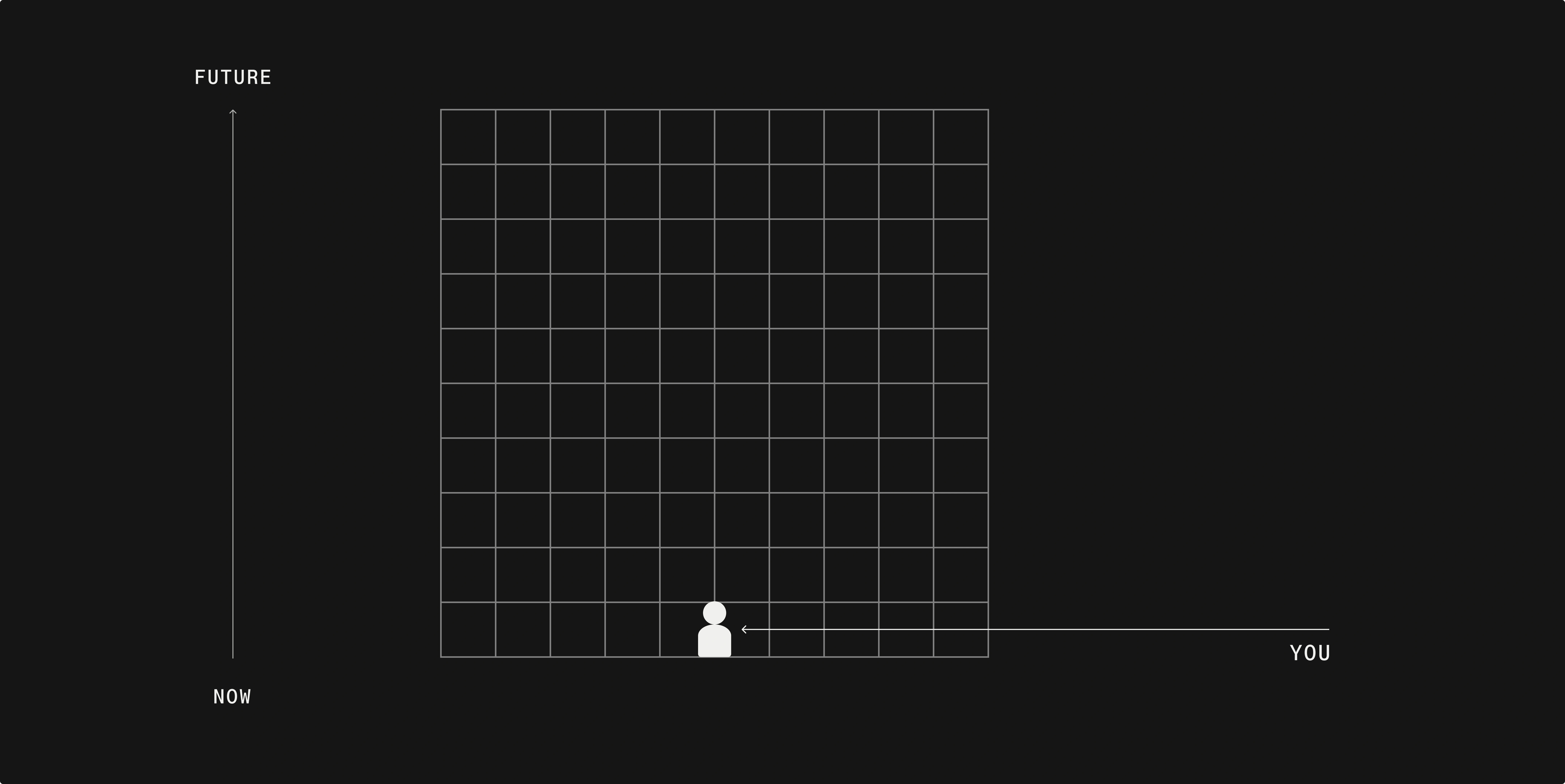Esoteric Principles for Entrepreneurs

Every startup founder and tech entrepreneur is flooded with business books, productivity frameworks, and Huberman protocols for optimal performance. But what if the most powerful edge isn't found in conventional approaches but in esoteric principles that sound too strange to work?
I used to be one of these people and have read all of the literature all founders and techies have in their library. From 'The $100 Dollar Startup' and 'The Lean Startup' to 'From Zero to One' and 'The Hard Thing About Hard Things', all of them have been valuable in their own way but did they really make a difference? Or was it just some form of procrastination? In the last 12 months, I've traded startup theory for esoteric mental models, and they've moved the needle more than any business book ever did.
One book stood out: Reality Transurfing by Vadim Zeland. I read it with skepticism. And maybe that's why it worked. I didn't try to believe, I just paid attention and followed his advice. What it comes down to is that every possible lifeline is out there for you to live. One closer to your current situation than the other, but it's all out there waiting to be lived by you. From lifelines where you have it all to lifelines full of misery. Vadim calls it the Alternatives Space. Think of it as a quantum multiverse or the Many Worlds Theory: every version of your life already exists. The only difference is that, according to Zeland, you have full control over your lifeline and are not bound to a specific universe you're living in. Every possible lifeline already exists, you just need to step into the one that aligns with the reality you want to live.
The Alternatives Space
See the alternatives space as a large grid of pixels, and your current self is at the bottom in the center. The pixels on top are further in the future and the pixels on the bottom are about to unfold. The closer the pixels are to you, the more likely they will be turned from metaphysical to physical. Each pixel represents a part of your possible lifeline. There are pixels completely in line with how you imagine your perfect life, but also numerous pixels that are filled with stress, anger, illness, or worse.

You might wonder why this is important to understand. The point is that you literally decide what the next pixel is that will unfold. Most likely you've heard some kind of reference to the idea of our thoughts shaping our realities. From Earl Nightingale's "You become what you think about" to the Bible's "As a man thinketh, so is he" (Proverbs 23:7), the idea that thoughts shape reality has been echoed for centuries. According to Vadim, our thoughts will align us with the next pixel. The more you focus on things that make you angry, the more you will get of it. The more you focus on love and health, the more you will get from it. The universe does not care about good or bad, it gives you more of the thing you are most conscious about. This idea is a core component of the more spiritual philosophy of 'The Law of Attraction' but also leads us to the great philosopher Carl Jung. Jung believes, as he laid out in his book Synchronicity, that the psyche and physical reality are connected by meaning, not causality. Think of those moments where your thoughts, dreams, or emotions seem to magnetize external events.
Let's assume that the universe's energy flows through us and the thoughts you have are manipulating the energy that flows through you. Once the energy leaves, it sends out the energy you have given it and it will align the next pixel with the energy you are broadcasting.
Resistance and Pendulums
Just having more positive thoughts is, of course, way easier said than done. There are many forces that constantly try to throw you off balance, think of social media and the news, haters and critics, or things like shiny object syndrome. Steven Pressfield thinks similar about this, in his book 'The War of Art' he refers to this as Resistance. He writes: "Resistance will tell you anything to keep you from doing your work. It will perjure, fabricate; it will seduce you. Resistance is always lying and always full of shit." Vadim calls this phenomenon 'Pendulums'.
Pendulums are collective thought structures or energetic entities that feed on the attention and emotional energy of people. It starts small, but grows stronger as more people align with it through fear, love, hate, support, or resistance. They don't care if your energy is "positive" or "negative," as long as you're hooked.
A pendulum can be something innocent like a software development company, or it could be politics or even worse, war. Vadim's Pendulums or Pressfield's Resistance have a lot in common and that is to prevent you from living the life you want to live. It's so easy to getting sucked into a politically loaded conversation, the next industry related FOMO, or social movements.
You will never be free until you stop reacting to these, whether this is positive or negative. As you might think already, you will always have some form of a pendulum in your life. From the company you work for to the local community you live in. The best way for you to disengage from a pendulum is to stay aware, reduce emotional involvement, and move in your own direction with pure intention. As long as the pendulum serves you, like a company, then move with it. But always with awareness and minimized emotional involvement.
Why caring too much breaks everything
There's a paradox every founder knows but rarely discusses: the deals you desperately need never close, while the ones you approach casually often do. The pitch you practice obsessively falls flat, but the informal conversation at a coffee shop leads to something great. Zeland believes this isn't random and thinks that the importance you attach to things is causing this.
Today, grind is still recognized as the key approach to get where you want. From hustle culture and the 5AM club to everything taught at school, we're conditioned to force results through effort. We brute-force our way to product-market fit, grind all day everyday, and want recognition for the insane effort we put in. That's still better than doing nothing. But what if your grind could work better if it wasn't so heavy-handed?
When we make something too important, we create an energetic imbalance. Zeland calls this "Excess Potential". Reality corrects these imbalances, usually by blocking exactly what we're forcing. Think about those meetings where you told yourself, "This HAS to go well, or we're dead." Undeniable tension. Your pitch felt rehearsed. The questions threw you off because you were so attached to a specific outcome.
Now contrast that with a casual coffee meeting where you mentioned your business. No pressure, no rehearsed elevator pitch. Just authentic conversation about a problem you're solving. Those meetings often lead somewhere because there's no excess potential disrupting the flow.
This connects quite well to something you probably know better: Stoicism. The Stoics figured important things out 2,000 years ago that remain powerful today. Marcus Aurelius wrote about focusing only on your actions, not their outcomes. The Stoics called it preferred indifferents. You can prefer success, wealth, or recognition, but your peace of mind can't depend on getting them.
Transurfing says the same thing with different language: have clear intention about your direction, but hold the outcomes lightly. Both teach that excessive desire creates resistance. There is a key difference, though. Stoics practiced negative visualization, imagining loss to reduce attachment. Transurfing would say this is dangerous because you're focusing on unwanted pixels. Where you put your attention, energy flows.
There's a crucial difference between high standards and high importance. High standards mean striving to deliver excellent work and having clear expectations of the things you create. High importance means your emotional state depends on specific outcomes.
The key is wanting something without needing it. When you combine pure intention with low importance, the grind stops being a struggle. You start gliding. You're not creating an energetic imbalance that blocks your intended lifeline.
What we just described is, according to Zeland, all inner intention. The grinding, the forcing, even the Stoic detachment. It's all about managing your internal approach to getting what you want. Now we're going to talk about outer intention. This is where things get interesting.
Intention is not just wanting something
According to Transurfing, there is a far more powerful form of intention: 'Outer Intention'. It's what happens when you align so clearly with your desired lifeline that reality starts coordinating with you, rather than you forcing your way through reality.
Outer intention emerges when you stop trying to control how things unfold and start trusting the process. It's the thing that puts you in a flow state where everything clicks. It's the state that creates those moments when the right person calls at the right time, when solutions appear without forcing them, and when opportunities seem to magnetize toward you.
Here's where most people get Transurfing wrong. They read about outer intention and desired lifelines and think it's like modern spiritual clickbait. Take The Secret, which sells the illusion that visualizing alone will make the universe bend to your will. That's not Transurfing at all, that's just wishful thinking.
Zeland is clear about this: intention equals desire plus action. You need both components or you're just daydreaming. Desired reality without action is hoping. Action without clear direction is just busy work. Intention is the marriage of both.
The key, according to Zeland, is to focus on taking the next step, not leaps. Most founders have figured out all the steps to reach their desired end result. A well-defined plan to go from idea to IPO plays on loop in their minds, and they get frustrated when reality doesn't cooperate. That's not how these pixels unfold. Keep your end goal in mind, but don't hold the plans that take you there too firmly.
The universe responds to energy, not dreams. When you take consistent action toward your desired lifeline, you're showing the Alternatives Space that you're serious. Each step you take makes the next pixel in that direction more probable. When you stay in motion, focusing on taking the next step, the universe will meet you halfway. The path that eventually leads to your end goal will always be different than how you imagined it would go.
Gut feeling plays an incredibly important role here. Zeland calls it "the rustle of the morning stars"; you probably recognize this better as founder intuition. When things don't feel right, even though on paper everything looks good, you better listen deeply to what your gut is trying to tell you. When things do feel right, you'll feel it too. This will lead you onto paths you could not have imagined before you took them. I guess it's worth trusting the universe a bit more.
Every founder with some years of experience under their belt knows this deep inside. The decisions I've made that made sense to everyone else and looked good on paper, but while my gut told me something was off, turned out to be terrible moves. The times people thought I was doing something stupid, while to me it felt like a great thing, unfolded surprisingly well. Derek Sivers captured this perfectly in 'Hell Yeah or No': "If I'm not saying Hell Yeah! about something, then I say no." We're getting more and more out of tune with our gut, all while it tells us so many important things.
The difference between inner and outer intention is profound. Inner intention says "I will make this happen." Outer intention says "I allow this to happen, and I'm coordinating with how it wants to unfold." Both require action, both require clarity, but the energy behind them is completely different. Inner intention should be channeled towards managing your thoughts, being aware of what your gut tells you, and making sure you stay in motion while keeping your desired goal in mind. Outer Intention is the thing that will take you there in the most efficient way.
Surf, don't scramble
Most founders approach challenges like boxers. They meet every problem with force, trying to punch through obstacles. But what if there was a more elegant way? What if you could navigate business like a surfer, reading the waves and riding them instead of fighting them?
Life isn't linear or mechanical. It's rhythmic and dynamic. Zeland calls this coordination of intention. It's choosing how you respond to events while staying aligned to your desired lifeline. It's not about passive acceptance. Those that let reality happen will mostly end up unsatisfied. It's about using the flow and steering in a controlled manner and with full intention towards where you want to be.
Let's say you have a terrible sales month. The boxer mentality kicks in: panic, tighten up, start making desperate moves, send aggressive follow-up emails, slash prices to force deals. This reactive energy often shifts you to a worse pixel. One that is aligned with desperation and anxiety.
The surfer mentality is different. You acknowledge the bad month without making it mean everything. You stay present, analyze what's actually happening, and adjust your approach while maintaining your longer-term direction. Maybe this downturn is revealing a product-market fit issue that needed addressing anyway. Maybe it's clearing space for better clients who are already in your pipeline.
The goal is movement with clean intention and clear awareness. You're not fighting reality or trying to force it into your timeline but merely coordinating with it. Staying flexible in the path you're taking while remaining firm in your destination.
This is especially crucial in startup operations. Founders often confuse panic with urgency, and urgency with productivity. But there's a rhythm to building companies that panic disrupts. Revenue has seasons. Team dynamics have cycles. Product development has a natural cadence. When you learn to surf these rhythms instead of fighting against them, everything becomes more effortless.
How I apply this daily
If you're reading this far, you probably don't believe this is some woo-woo. To me it's a tactical mindset system I use daily. Here's the simple framework that has moved the needle more than any business book.
Morning Coordination (10 minutes):
This only takes ten minutes. Wake up 10 minutes earlier or do it in the shower - whatever works for you. You can do this while walking or just sitting in a lazy chair, as I do.
Awareness Check: What pendulums are trying to hook me? Is it the X outrage cycle, some hiccups in ongoing partnerships, or that critical client email? I identify them without judgment, just awareness.
Lifeline Alignment: I spend two minutes visualizing the version of reality where I already live in my desired reality. Just the calm, focused founder who has already solved his problems.
Action with Low Importance: I choose my top three actions for the day, but I hold them lightly. High standards for execution, low attachment to specific outcomes. I want these things to work, but I don't need them to work in exactly the way I imagine.
Throughout the day:
When I notice resistance or things feeling forced, I pause and ask: "Am I boxing or surfing right now?" Usually, I'm boxing. The simple recognition helps me adjust my energy and approach.
Evening Reflection:
What flowed today? What felt forced? Where did I get hooked by pendulums? No judgment, just data for tomorrow's coordination. I practice to be grateful for the things in my life and to say a little prayer for those around me.
The entire system takes maybe 15-20 minutes a day, but it's changed how I navigate everything from difficult conversations to product decisions.
Awareness, not magic
Look, I get it. This sounds like Silicon Valley quantum physics meets some esoteric rabbit holes. But strip away the metaphysical framework, and you're left with something every founder needs: better awareness of how your mental state affects your results.
Whether you believe in Transurfing or not, you can't argue with this: the energy you bring to situations matters. Your attachment to outcomes affects your performance. Your ability to stay present during chaos impacts your decision-making. These aren't just mystical concepts but can also be seen as practical intelligence.
Every founder optimizes for leverage. You look for ways to get more output from less input. You automate systems, delegate tasks, and find tools that multiply your efforts. This is nothing but optimizing the operating system between your ears.
Carl Jung wrote, "Everything that irritates us about others can lead us to an understanding of ourselves." The irritating pendulums, the forced situations, the importance we attach to outcomes. They're all pointing us toward better self-awareness.
Marcus Aurelius understood this 2,000 years ago: "You have power over your mind, not outside events. Realize this, and you will find strength." Vadim just packaged ancient wisdom in a framework that resonates with how we understand reality today.
Try it. Not to believe it, but to see if it works. Spend a week paying attention to your mental state before important meetings. Notice when you're boxing versus surfing. Observe how pendulums try to hook your attention. See if coordination feels different than force.
The worst that happens? You become more aware of how your thoughts affect your actions. The best that happens? You discover that reality is far more malleable than your business books ever suggested.
.webp)


.webp)


















.webp)

.webp)





.webp)






%20(1).webp)







.webp)
.webp)



